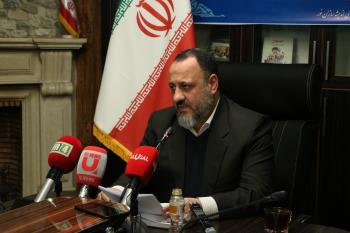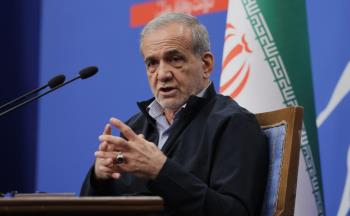Alwaght- Sixteen members of the UN, including China, Russia, and Iran have pushed for a plan at the UN against the use or threat of force and unilateral sanctions.
The motion was an effort by these members to “defend” the UN Charter, sources familiar with the move said.
Called the “Group of Friends in Defense of the Charter of the United Nations," the coalition comprises China, Russia, Iran, North Korea, Algeria, Angola, Belarus, Bolivia, Cambodia, Cuba, Laos, Nicaragua, Palestine, Syria, Venezuela, and Saint Vincent and Grenadines.
The coalition bears signs of rise of a new pole on the global stage against the US unilateralism, analysts agree.
Group of Friends in Defense of the Charter of the United Nations
“Multilateralism is currently under an unprecedented attack, which, in turn, threatens global peace and security,” a statement released by the bloc said, adding: “The world is seeing a growing resort to unilateralism, marked by isolationist and arbitrary actions, including the imposition of unilateral coercive measures or the withdrawal from landmark agreements and multilateral institutions, as well as by attempts to undermine critical efforts to tackle common and global challenges.”
Certainly, the document published by the members of the new anti-sanctions and coercion coalition shows that the main goal of the group's founders is to counter the destructive and terrorist approach of Western countries in using economic instruments to advance political goals through coercion and domination against other countries, especially the states rivaling the West.
US Department of Treasure and EESC turned into economic war rooms
There seems to be reasonable logic behind formation of the anti-sanctions and force coalition. It targets the use of economic terrorism and incitement by the Western countries and mainly the US and the European Union. In the past, there was a notion that any country with military and political power can exercise influence on the global arena as a superpower. But over the past few decades, we have seen the use of soft power— marked by the US dollar dominance— as a powerful tool for extending diplomatic dominance. This is dubbed “dollar diplomacy.”
Dollar diplomacy was a term first used by US President William Howard Taft in the early 20th century. He stated that he wanted to use the “dollar instead of bullets”, a policy that was to replace the time’s naval force diplomacy. The term has been denounced by Latin American countries over the past decades as a tool for Washington profiteering in that region.
In the recent years, the dollar diplomacy moved towards a form of implementation of economic terrorism on the strength of the dollar dominance. Unlike in the past, while the US Department of Defense or the EU Security and Defense Committee were primarily responsible for dealing with rivals, now it is the Department of Treasury and the EU Economic and Social Committee that have become key agents in the fight against rival states.
In recent years, the Department of Treasury has virtually become the US war room against its international rivals. Especially in the post-Cold War years, sanctions policy has dominated the American foreign policy approach more than ever, and the range of sanctions imposed by Washington on its rivals, such as China, Iran and Russia, is well beyond imagination. Under the new strategy, the Treasury in addition to sanctioning governments and public and private companies also imposes bans on individuals and political figures in other countries.
In fact, the White House policymakers, no matter Republican or Democrat, think that they should continue the war using tools other than hard power and weapons. Sanctions here take a center stage as an economic weapon.
It can be said that the US Treasury has departed from its financial duty that is envisaged for such institutions in the world. Actually, it has become a war ministry with soldiers wearing suits that tries to impose sanctions on other countries. In addition to the US Treasury, this approach is followed by the EU, and in line with Washington, the bloc pursued sanctioning policies.
This approach has been under focus of the international affairs theorists. Ian Bremmer and Cliff Kupchan, two Amirian political scientists, suggested “weaponization of finance” concept in their definition of the policies of some Western countries’ use of financial systems instrumentally in the diplomacy of force against specific countries. They argue that the US instead of relying on its security and military supremacy factors like NATO and its own military abuses the financial systems like the International Monetary Fund and the World Bank as weapons to advance its foreign and security policy. Washington threatens severance of access of markets and banks to the global financial system as a lever against the countries not complying with its overbearing policies.
US sanctions hampering global battle against COVID-19
One of the main actions of the new bloc is raising the global awareness about the role of the US sanctions in slow fight of the world against the coronavirus pandemic that knows no boundaries and requires global resolution to control and uproot.
The US sanctions, despite false slogans by the American officials about assisting the global health, have had a profound effect on the ability of sanctioned countries to obtain drugs and other medical supplies to protect their societies from the coronavirus, with civilians paying the highest costs of the Washington and West’s restrictions.
With the American victims of the COVID-19 passing half a million, the US is the setting of the biggest health disaster caused by the pandemic. In fact, Washington’s policy of sanctioning has indirectly taken its toll on the American lives. This increases the costs of the global combat against the pandemic. Definitely, the international community holds the White House accountable for rise of such a situation.



























